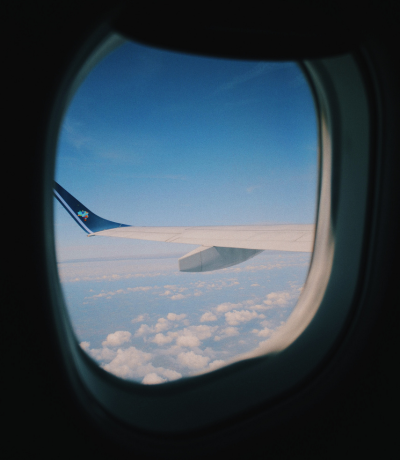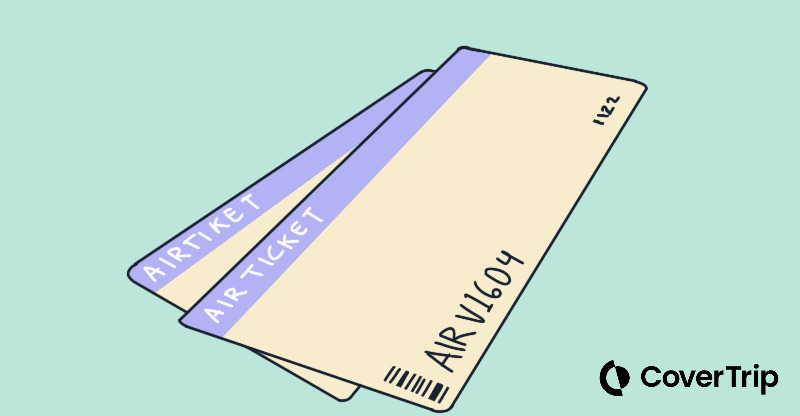Game-changing Airline Ticket Updates
10 May 2024
If you haven’t bought or canceled an airline ticket in the past year or so, you’re in for some surprises. I sure was when I recently canceled a nonrefundable ticket and got most of my money back!
Like so many others, the airline industry is constantly evolving and altering the way passengers purchase tickets. From the introduction of baggage fees to seat selection charges, airlines have adopted a more à la carte pricing model.
They’ve also introduced new, and often very good, reasons to join their loyalty programs.
The rapid rise of airline fees, sometimes called ‘junk fees,’ has raised concerns about passenger rights, prompting calls for greater transparency and consumer protection in the ticketing process.
Check out the evolution of airline tickets and learn what you can do to save money on your next trip.

Baggage fees
Luggage fees seem like they’ve been around forever, but they are relatively new. In 2008, American Airlines became the first major US airline to charge customers to check a bag. It cost $15.
Travelers quickly raised a storm of protest and quit checking their bags, which caused all kinds of chaos at the TSA checkpoints and slowed the boarding process significantly.
In the meantime, nearly all other US airlines (except Southwest, bless them) initiated baggage fees. After that, the reiterative cycle of raising those fees began.
As of March 2024, here’s a review of what airlines charge now per bag:
- American Airlines – $40 for the first, $45 for the second (although you can save $10 per bag if you prepay the fees 24 hours before the flight, essentially at check-in)
- JetBlue – $45 for the first bag, $60 for the second (and you can save if you prepay 24 hours pre-departure)
- United – $45 for the first bag, $50 for the second (with savings for prepaying at check-in)
This started the revolution to avoid checked bag fees, which can be done by:
- Flying Southwest
- Signing up for airline credit cards (which usually allow free checked bags)
- Avoiding basic economy
- Packing light enough to carry your bag onboard
Seat selection fees
After travelers quit griping about baggage fees (and learned to avoid them), in the mid- to late-2000s the big US carriers quietly introduced seat selection fees. This new fee quickly became the most hated airline fee ever, and it’s easy to see why.
Take a look at this example from a flight I recently booked:
Ticket ($309.76 + Taxes & carrier-imposed fees $72.43) – $382.19
- Paid seat fee (BOS-PHL) – $10.00
- Paid seat fee (PHL-DEN) – $12.00
- Paid seat fee (DEN- PHL) – $6.77 (I guess that’s a discounted fee?)
- Paid seat fee (PHL-BOS) – $12.64
Total ticket cost: $423.60
Not only are the seat selection fees different for every flight, I don’t really want to pay to select my seat at all!
A seat selection fee allows the traveler to choose a seat in their selected class of service. Each airline ticket already comes with a confirmed seat, but you have to pay more to choose the type of seat (window, middle, or aisle).
Good grief! Basic economy is now even more basic.
24 hours to change your mind
In the past, there were few options when you wanted to change your mind or change your ticket. With most airlines, any change to a basic economy ticket required a minimum fee (usually at least $200) plus the difference in airfare.
Now, there’s a 24-hour rule, and it’s wildly popular with cheap flight lovers.
The rule ensures free cancellations or changes on most flights if they:
- Originate in or travel to the US on any airline (not just US airlines),
- Were booked directly with the airline (that’s important), and
- Were booked at least 7 days in advance of the flight.
The 24-hour rule matters because it helps travelers get the lowest price on their flight. If you see a price drop within 24 hours of booking, you can book the cheaper fare and cancel the other flight.
The rule gives you 24 hours to decide, which is very helpful when you’re booking flights and waiting to find out if the dates work with your child or pet care, your work schedule, etc.
Pro tip: Some travelers (myself included) will book-cancel, and book-cancel on a rolling basis to get the best price while working out plans with friends and family.
More classes to choose from
In the beginning, there was first and coach class.
Then, there was first, business, and coach/economy class.
Now, there’s first, business, premium, main, and basic economy class (plus a few others, depending on the airline).
Literally, it is changing all the time! Some airlines are even eliminating first class entirely.
While some airlines are cutting back on their first-class products, others are introducing new cabin structures like premium economy. Premium economy is highly popular for passengers who can afford a little more but don’t necessarily want or need the first-class level of service.
What you get in premium economy currently varies by airline, however, so be sure to do some research on the plane type and what premium economy is currently like before you pay the extra cost.
Non-refundable tickets now have wiggle room
In the end, I decided not to take that BOS-DEN trip. The ticket was booked on American Airlines, so I clicked the Manage Trip link in the confirmation email to check my options.
Remember, this is a basic economy class ticket with selected seats.
I clicked the Cancel option and discovered I had options:

So, nonrefundable tickets aren’t truly nonrefundable for AAdvantage members. As a loyalty member, I’m still paying a fee to cancel, but at least I don’t eat the entire ticket cost.
That feels like an improvement and a good reason to join the airline’s loyalty program.
Coming soon – expanding passenger rights
Due to strong complaints, the US Department of Transportation has implemented some new consumer protections, including:
- Automatic refunds when flights are canceled or significantly delayed. This means the airline will have to refund the full ticket price, including fees and taxes, by cash or card refund. No more flight vouchers or ‘bonus’ miles in place of your ticket cost when flights don’t take off as scheduled.
- A single definition for ‘significantly delayed’ is now three hours or more for domestic flights and six hours or more for international flights. The airlines previously determined this definition.
- Refunds for the cost of services that don’t work, such as Wi-Fi, seat selection, or inflight entertainment.
- Checked bag fees are also to be refunded when bags arrive late; within 12 hours for a domestic flight, and 15-30 hours for international flights (depending on the length of the flight).
- Refunds for other flight disruptions like arriving or departing from a different airport than the one you booked, and connections at airports or flights that are less accessible for a person with a disability.
- Airlines must give travel vouchers or credits to ticketed passengers that are unable to fly due to government restrictions or a doctor’s orders too. Those credits can be transferred and/or used up to five years after the date they were issued.
- Transparent and upfront display of all fees – no requiring passengers to click a link and research them and no unpleasant surprises last-minute in the checkout process.
Some of these refunds were always in place, but getting compensation often required a cumbersome paper trail or spending untold hours on the phone.
Under the new rules, refunds are automatic, so passengers don’t have to request them.
Most of these new rules go into effect in October 2024, so they should be in place for this year’s Thanksgiving and winter holidays.
Related topics
Damian Tysdal is the founder of CoverTrip, and is a licensed agent for travel insurance (MA 1883287). He believes travel insurance should be easier to understand, and started the first travel insurance blog in 2006.
